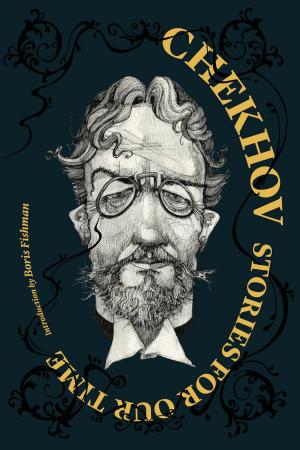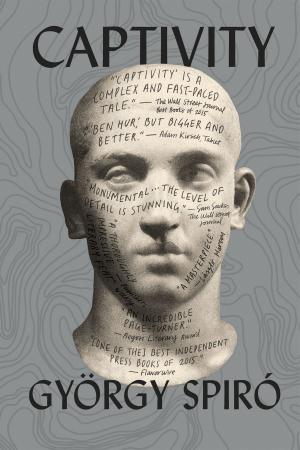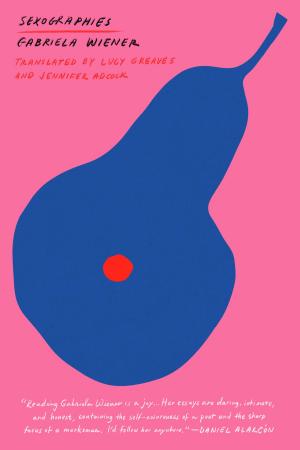| Author: | Ricardo Piglia, Robert Croll | ISBN: | 9781632061997 |
| Publisher: | Restless Books | Publication: | November 13, 2018 |
| Imprint: | Language: | English |
| Author: | Ricardo Piglia, Robert Croll |
| ISBN: | 9781632061997 |
| Publisher: | Restless Books |
| Publication: | November 13, 2018 |
| Imprint: | |
| Language: | English |
Book Description:
The second installment of Argentine literary giant Ricardo Piglia’s acclaimed bibliophilic trilogy follows his alter ego, Emilio Renzi, as his literary career begins to take off in the tumultuous years 1968-1975—running a magazine, working as a publisher, and encountering the literary stars among whom he would soon take his place: Borges, Puig, Roa Bastos, Piñera.
“One writes,” Ricardo Piglia asserts, only “in order to know literature.” Spanning the years 1968 to 1975, The Diaries of Emilio Renzi: The Happy Years is a testament to Piglia’s intimate, lifelong love affair with the written word. This second installment of the Argentinian master’s diaries opens a window into a luminous literary community fertile with genius and ever-traipsing from bar to bar—as well as into a convulsing Argentina racked by the death of Perón, guerilla warfare, and a bloody military coup—and establishes itself as the definitive backbone of Piglia’s monumental career.
Praise for The Diaries of Emilio Renzi: Formative Years
“Splendidly crafted and interspliced with essays and stories, this beguiling work is to a diary as Piglia is to “Emilio Renzi”: a lifelong alter ego, a highly self-conscious shadow volume that brings to bear all of Piglia’s prowess as it illuminates his process of critical reading and the inevitable tensions between art and life. Amid meeting redheads at bars, he dissects styles and structures with a surgeon’s precision, turning his gaze on a range of writers, from Plato to Dashiell Hammett, returning time and again to Pavese, Faulkner, Dostoyevsky, Arlt and Borges.... this is an embarrassment of riches... No previous familiarity with Piglia’s work is needed to appreciate these bibliophilic diaries, adroitly repurposed through a dexterous game of representation and masks that speaks volumes of the role of the artist in society, the artist in his time, the artist in his tradition.”
—Mara Faye Lethem, The New York Times Book Review, Editors’ Choice
“For the past few years, every Latin American novelist I know has been telling me how lavish, how grand, how transformative was the Argentinian novelist Ricardo Piglia’s final project, a fictional journal in three volumes, Los diarios de Emilio Renzi—Renzi being Piglia’s fictional alter ego. And now here at last is the first volume in English, The Diaries of Emilio Renzi: Formative Years, translated by Robert Croll. It’s something to be celebrated… [It] offer[s] one form of resistance to encroaching fascism: style.”
—Adam Thirlwell, BookForum, The Best Books of 2017
“A valediction from the noted Argentine writer, known for bringing the conventions of hard-boiled U.S. crime drama into Latin American literature...Fans of Cortázar, Donoso, and Gabriel García Márquez will find these to be eminently worthy last words from Piglia.”
—Kirkus Reviews, Starred Review
“When young Ricardo Piglia wrote the first pages of his diaries, which he would work on until the last years of his life, did he have any inkling that they would become a lesson in literary genius and the culmination of one of the greatest works of Argentine literature?”
—Samanta Schweblin, author of Fever Dream
“Ricardo Piglia, who passed away earlier this year at age seventy-five, is celebrated as one of the giants of Argentine literature, a rightful heir to legends like Borges, Cortázar, Juan Jose Saer, and Roberto Arlt. The Diaries of Emilio Renzi is his life's work... An American equivalent might be if Philip Roth now began publishing a massive, multi-volume autobiography in the guise of Nathan Zuckerman…. It is truly a great work.... This is a fantastic, very rewarding read—it seems that Piglia has found a form that can admit everything he has to say about his life, and it is a true pleasure to take it in.”
—Scott Esposito, BOMB Magazine
About the Author:
Ricardo Piglia (Buenos Aires, 1940–2017), professor emeritus of Princeton University, is unanimously considered a classic of contemporary Spanish-language literature. He published five novels, including Artificial Respiration, The Absent City, and Target in the Night, as well as collections of stories and criticism. Among the numerous prizes he received were the Premio de la Crítica, Premio Rómulo Gallegos, Premio Bartolomé March, Premio Casa de las Américas, Premio José Donoso, and Premio Formentor de las Letras.
About the Translator:
Robert Croll is a writer, translator, musician, and artist originally from Asheville, North Carolina. He first came to translation during his undergraduate studies at Amherst College, where he focused particularly on the short fiction of Julio Cortázar.
Book Description:
The second installment of Argentine literary giant Ricardo Piglia’s acclaimed bibliophilic trilogy follows his alter ego, Emilio Renzi, as his literary career begins to take off in the tumultuous years 1968-1975—running a magazine, working as a publisher, and encountering the literary stars among whom he would soon take his place: Borges, Puig, Roa Bastos, Piñera.
“One writes,” Ricardo Piglia asserts, only “in order to know literature.” Spanning the years 1968 to 1975, The Diaries of Emilio Renzi: The Happy Years is a testament to Piglia’s intimate, lifelong love affair with the written word. This second installment of the Argentinian master’s diaries opens a window into a luminous literary community fertile with genius and ever-traipsing from bar to bar—as well as into a convulsing Argentina racked by the death of Perón, guerilla warfare, and a bloody military coup—and establishes itself as the definitive backbone of Piglia’s monumental career.
Praise for The Diaries of Emilio Renzi: Formative Years
“Splendidly crafted and interspliced with essays and stories, this beguiling work is to a diary as Piglia is to “Emilio Renzi”: a lifelong alter ego, a highly self-conscious shadow volume that brings to bear all of Piglia’s prowess as it illuminates his process of critical reading and the inevitable tensions between art and life. Amid meeting redheads at bars, he dissects styles and structures with a surgeon’s precision, turning his gaze on a range of writers, from Plato to Dashiell Hammett, returning time and again to Pavese, Faulkner, Dostoyevsky, Arlt and Borges.... this is an embarrassment of riches... No previous familiarity with Piglia’s work is needed to appreciate these bibliophilic diaries, adroitly repurposed through a dexterous game of representation and masks that speaks volumes of the role of the artist in society, the artist in his time, the artist in his tradition.”
—Mara Faye Lethem, The New York Times Book Review, Editors’ Choice
“For the past few years, every Latin American novelist I know has been telling me how lavish, how grand, how transformative was the Argentinian novelist Ricardo Piglia’s final project, a fictional journal in three volumes, Los diarios de Emilio Renzi—Renzi being Piglia’s fictional alter ego. And now here at last is the first volume in English, The Diaries of Emilio Renzi: Formative Years, translated by Robert Croll. It’s something to be celebrated… [It] offer[s] one form of resistance to encroaching fascism: style.”
—Adam Thirlwell, BookForum, The Best Books of 2017
“A valediction from the noted Argentine writer, known for bringing the conventions of hard-boiled U.S. crime drama into Latin American literature...Fans of Cortázar, Donoso, and Gabriel García Márquez will find these to be eminently worthy last words from Piglia.”
—Kirkus Reviews, Starred Review
“When young Ricardo Piglia wrote the first pages of his diaries, which he would work on until the last years of his life, did he have any inkling that they would become a lesson in literary genius and the culmination of one of the greatest works of Argentine literature?”
—Samanta Schweblin, author of Fever Dream
“Ricardo Piglia, who passed away earlier this year at age seventy-five, is celebrated as one of the giants of Argentine literature, a rightful heir to legends like Borges, Cortázar, Juan Jose Saer, and Roberto Arlt. The Diaries of Emilio Renzi is his life's work... An American equivalent might be if Philip Roth now began publishing a massive, multi-volume autobiography in the guise of Nathan Zuckerman…. It is truly a great work.... This is a fantastic, very rewarding read—it seems that Piglia has found a form that can admit everything he has to say about his life, and it is a true pleasure to take it in.”
—Scott Esposito, BOMB Magazine
About the Author:
Ricardo Piglia (Buenos Aires, 1940–2017), professor emeritus of Princeton University, is unanimously considered a classic of contemporary Spanish-language literature. He published five novels, including Artificial Respiration, The Absent City, and Target in the Night, as well as collections of stories and criticism. Among the numerous prizes he received were the Premio de la Crítica, Premio Rómulo Gallegos, Premio Bartolomé March, Premio Casa de las Américas, Premio José Donoso, and Premio Formentor de las Letras.
About the Translator:
Robert Croll is a writer, translator, musician, and artist originally from Asheville, North Carolina. He first came to translation during his undergraduate studies at Amherst College, where he focused particularly on the short fiction of Julio Cortázar.















